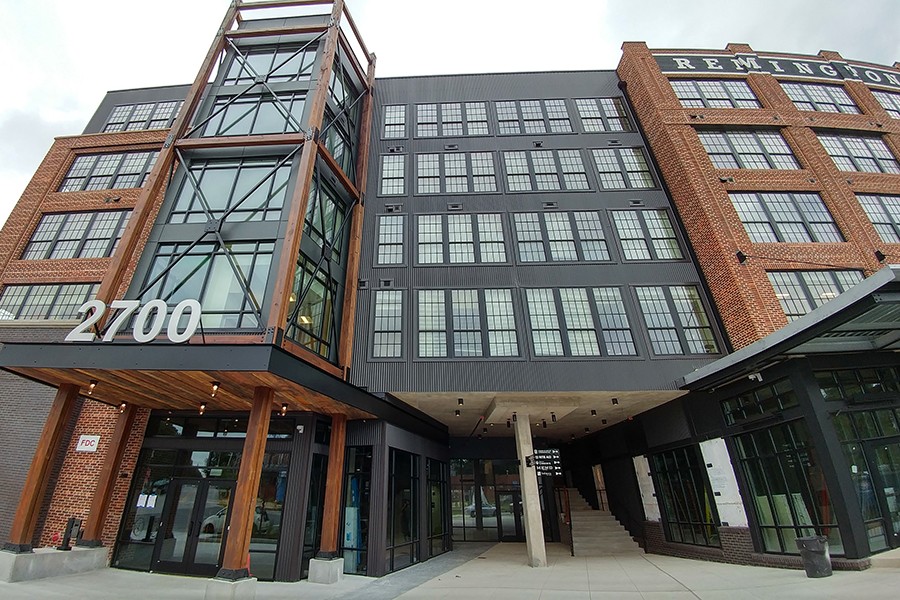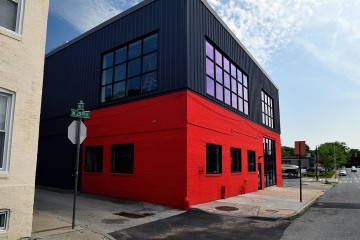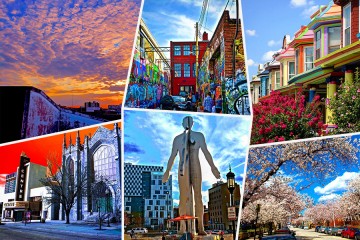The Remington community near Johns Hopkins University's Homewood campus is launching a Shark Tank-style search for innovative new retail businesses to open in two neighborhood storefronts, rent-free for up to two years.
The Remington Storefront Challenge—announced today by the Greater Remington Improvement Association, in partnership with Johns Hopkins University and Seawall Development Corp.—is designed to attract entrepreneurs with concepts that will thrive in Remington, recently one of Baltimore's hottest neighborhoods.
"We are looking to increase the diversity of business owners and retail options in the neighborhood," said K.C. Kelleher, a member of GRIA. "We want to find the two concepts that best support the values and needs of our community."
Each winner will receive funding to help deck out their new spaces, plus technical assistance to help achieve their goals.
The competition is inspired by the recent Kensington Avenue Storefront Challenge in Philadelphia. Potential Remington tenants must apply online at rscbaltimore.com by Jan. 8; the top 10 entries will then be pitched in person to a panel of judges consisting primarily of Remington residents. Local business owners and anchor institutions like Johns Hopkins will also be represented on the panel.
The neighborhood—which began with quarries and water-powered factories along the Jones Falls—became a so-called "streetcar suburb" of Baltimore with an influx of residents after the introduction of the electric railway. It was annexed into the city in 1888.
Recently, its traditional row homes and longstanding popular businesses like The Dizz and Paper Moon have been joined by Seawall's office and residential projects and ventures as diverse as the R House food hall, Clavel Mezcaleria and Taqueria, and Single Carrot Theatre.
Johns Hopkins has been deeply committed to Remington's resurgence and has located FastForward R. House, FastForward U Homewood, and a Johns Hopkins Community Physicians medical office in the neighborhood.
Also see
"It's exciting to see so much activity and so many new businesses in Remington," said Mitch Bonanno, the university's chief real estate officer. "The university has supported GRIA, Seawall, and others in making it happen, and we're honored to continue that support in the Remington Storefront Challenge. We can't wait to see what new businesses our Remington neighbors choose to occupy these two prime retail locations."
The university and Seawall together own one of the Remington Storefront Challenge's two available storefronts, at 300 W. 29th St. Johns Hopkins will contribute basic updates to and renovations of the property, funds to allow the winning business to build out its space, and 12 to 24 months of no-charge rent.
The location, originally a gas station, is now occupied by Pizza Boli's. The pizza delivery franchise will close later this fall and relocate less than a mile away to 2014 N. Charles St.
The other storefront open for competition is 2700 Remington Ave., Suite 6000, a corner location with floor-to-ceiling windows. It's inside Seawall's Remington Row—a mixed-use building with retail and wellness businesses and 108 apartments.
Other supporters of the Remington Storefront Challenge are Central Baltimore Partnership, Howard Bank, and Younts Design.
Posted in University News, Community
Tagged community, real estate











